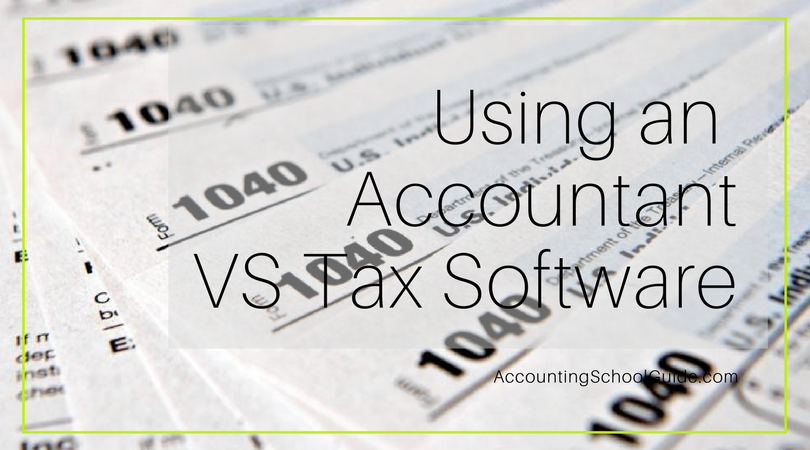Taxes are no fun, but misfiled taxes are even worse. You can squander a refund, get mired in an IRS audit, or, worst of all, suffer the slings and arrows of both (unlikely but not impossible).
Of course, in many ways, taxes are more complex than ever. The list of loopholes, exceptions, and bullet points runs the length of a fine-print novel. Just because you’ve filed your taxes one way the previous year, doesn’t mean you’ll file them the same way this year or the next. If you’ve married, had children, moved, switched jobs, bought a new house, or made any major purchases or investments (including 401k contributions, IRA contributions, etc.), those changes should be reflected in your taxes. So, yes, taxes in the 21st century are very complex.
At the same time, few people calculate and file their taxes on their own these days – that is, without assistance from a CPA or accounting software. (If you still do your taxes with pen and pad, more power to you.) Not only do accountants and accounting software offer expertise and peace of mind, each option significantly simplifies an otherwise elephantine task.
But how do you know which to choose? Below we break down the pros and cons of accountants vs. accounting software to help you find the best tax prep service for your needs.
Filing Taxes with an Accountant – Pros
There are several reasons to file taxes with an accountant in lieu of using accounting software. First and most important: personal accountability, pun unintended but apt. While filing your taxes online is convenient, you forfeit the one-on-one factor, and it’s generally harder to receive personal assistance if you have a specific question about your taxes. (Note: this is a very general statement. Most accounting programs do offer access to CPAs, but you might not be able to meet in person.)
Personal accountants analyze all your assets – income, bank accounts, investments, properties, etc. – to provide tailored tax advice that maximizes your potential refund and guarantees correct filing. (Make sure to double check that last point: most reputable tax firms offer some kind of filing guarantee.) Accountants are especially useful if you have expect to have complex taxes; for instance, if you own your own business, have a long list of assets, or recently experienced a major life change (i.e., bought a house, married, or had a child). Personal accountants also offer timely and responsive service, which is especially helpful in crunch time.
Filing Taxes with an Accountant – Cons
The downside? Accountants can be expensive. CPAs (Certified Public Accountants) are the highest-ranking professionals in the industry and may charge $50 or more by the hour. Further, many CPAs will assign your taxes to a lower-ranking employee, such as a “bookkeeper.” In that case, it might make more financial sense to go directly to a bookkeeper to keep close track of your finances. Still, thanks to high-tech accounting software, even hiring a bookkeeper may be unnecessary. If you’re willing to put in a little more work, the DIY route could be a worthwhile money-saver.
Filing Taxes with Accounting Software – Pros
Nearly every major tax preparation company offers online services and software. The obvious advantage? Convenience. If you expect your taxes to be relatively straightforward – for instance, if expect to take a standard deduction – filing online can take as little as 15 minutes. (If you’ve saved your personal information from last year, it could take even less.) But even itemized deductions are easy: simply answer a series of questions about your year to help determine what you owe or what you’re owed.
The other major draw is affordability. Depending on your tax form, some services are free. Specialized forms require a premium, but services are still less expensive than hiring an hourly accountant and similarly rigorous. Like using a personal accountant, most accounting software services offer a filing guarantee, and individual accountants are available for advising (though, as mentioned, services may vary). Lastly, if you’re an independent contractor, freelancer, or business owner, bookkeeping software like Quicken or Intuit allows you to cut costs and streamline personal finance management.
Filing Taxes with Accounting Software – Cons
But in reality, unless your taxes are textbook basic, you might have to consult an accountant at some point. Some accounting software questions are simple: how much income did you earn last year? Others are more nuanced. Want to qualify for the work-from-home tax credit? You’ll need to be able to prove that you meet the minimum hours, plus the minimum designated work space: in the event of an audit, the IRS requires you to have the equivalent of a home office to take the credit (that includes a specific foot-by-foot requirement). In other words, your living room can’t double as your office. Tax prep software is great if the majority of your tax questions are surface-level; the more particular your taxes, the less effective accounting software will be, meaning lost refunds and increased auditing risk.
Whatever Your Method, File Taxes Confidently
Every tax season is different, and every tax filing features new challenges. If you’re not sure about the best filing service, ask a coworker or a friend with a similar professional/financial background; each can provide context to help make a carefully considered decision. Alternatively, if your company has an in-house accountant or accounting department, ask for guidance. Plenty of other online resources are available as well, and be sure to do your homework on individual services beforehand.
The main thing is to file confidently. No one wants to worry about missed refunds or audits every April. Start early, ask questions, and look for the service that fits your individual needs. Taxes may not be fun, but the right help goes a long way.

